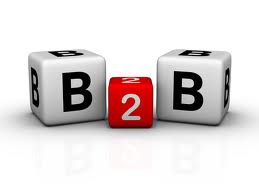I’ve heard a lot of speakers recently who must have been coached to always start a presentation with a joke. They follow this advice to the letter and wind up telling jokes that a) have nothing to do with the topic at hand, and b) aren’t funny. Telling a non-topical, non-funny joke just wastes time. Worse, a lame joke makes you look lame. Find out more in the video:
Strategy. Innovation. Brand.
What is wisdom?
Wisdom seems to be composed of five elements:
- Willingness to resolve conflicts;
- Willingness to compromise;
- Recognition of the limits of personal knowledge;
- Awareness that a given problem may legitimately be seen from different perspectives;
- Understanding that things may get worse before they get better.
We ask our leaders to be decisive. Perhaps, instead, we should ask them to be wise.
Is Nicholas Carr making sense?
 I’ve never much agreed with Nicholas Carr, who wrote the famous Harvard Business Review article, “IT Doesn’t Matter” in 2003. His argument was that information is like electricity — everybody can get it and therefore it can’t differentiate one company from another. IT doesn’t matter any more than electricity matters. To me, this is like saying that we all have brains and, therefore, having a brain doesn’t provide any of us competitive advantage. I think many people would ague that it’s what you do with your brain that confers the advantage. Similarly, it’s what you do with information — via the IT function — that can confer important advantages.
I’ve never much agreed with Nicholas Carr, who wrote the famous Harvard Business Review article, “IT Doesn’t Matter” in 2003. His argument was that information is like electricity — everybody can get it and therefore it can’t differentiate one company from another. IT doesn’t matter any more than electricity matters. To me, this is like saying that we all have brains and, therefore, having a brain doesn’t provide any of us competitive advantage. I think many people would ague that it’s what you do with your brain that confers the advantage. Similarly, it’s what you do with information — via the IT function — that can confer important advantages.
While I don’t generally agree with him, I found his interview with Rotman magazine fascinating. (The magazine is published by the Rotman School of Management at Toronto University). I especially liked his insight on crowd-sourcing — it’s a good way to complete tiresome, repetitive tasks — like debugging software — but it almost never leads to innovation. You can read the complete interview by clicking here.
When will B2B companies use social media?
The best business use of social media seems to come from business-to-consumer companies. Indeed, have you seen Tiffany’s new Facebook page? They’ve mastered the art of the timeline and are even bringing back old jewelry designs based on their followers’ votes.
So what about B2B companies? I decided to investigate using the Social Business Index published by the Dachis Group. I think of the SBI as a Klout score for businesses. The Dachis Group says the Index, “…analyzes the effectiveness of strategies and tactics organizations employ to engage the market through social channels….” The Index includes several thousand companies and is continually updated.
As you might imagine, B2C companies dominate the top end on the Index. You see names like Coca-Cola, Disney, Facebook, Google, Nike, Starbucks, and Zynga. The average score for all companies (the Composite Index) is 1,577. The companies just mentioned all scored well above 2,000.
And B2B companies? Not so easy to find. I looked for tech companies and found only three — HP, Intel, and Cisco – with scores above 1,577. The top B2B software company appears to be Oracle, with a slightly-below-average score of 1,220. That puts Oracle in 185th place compared to all companies. SAP is not far behind with a score of 1,122 and a rank of 218.
The scores drop quickly from there. EMC, Symantec, and Salesforce.com were the only other B2B software companies with scores greater than 1,000. I’m sorry to say that my old company, Lawson (now Infor) had a score of 187 which put it in 813th place. You can see all the B2B tech companies, including some services companies, in the attached pdf: B2B – Social Business Index
I’ll keep track of these companies and blog about their relative positions approximately once a month. I’m expecting B2B companies to incorporate more and more social media into their marketing programs. Let’s find out who the leaders will be.
Gamification – Software Innovation
Why do people play video games for hours on end? Why couldn’t accounting software be equally addictive? Well, actually, it could be if we designed accounting software the same way we design video games. There are five key attributes that make a difference. Learn more in the video.
Recent Comments